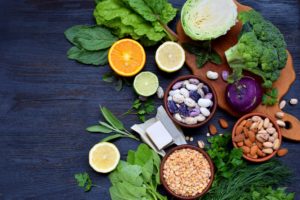
Okay, here are a few clues: it has an exotic name. It’s got more health benefits than you can count. It comes from a country halfway around the world. It’s only available at the finest food stores for a premium price. Do you know what it is?
Superfoods don’t have to fit the following criteria. They’re just nutrient-dense foods, and every region in the world produces their own. The reality is that you don’t need to eat rare berries from the jungles of South America or off the coast of Japan. You can find them in your community and at the very least, every single grocery store. Here’s a brief list of a few inexpensive, easily accessible foods you might not have thought were super.
Fish: Fish is a great source of protein no matter which type you prefer. A high-protein diet can lead to a faster metabolism, improved body composition, and healthy growth of new cells. Fattier fish like salmon are rich in omega-3 fatty acids that can help reduce the risk of heart disease (by lowering blood pressure and “bad” cholesterol) and dementia.
Leafy Greens: It’s hard to get more nutrient dense than leafy greens. Spinach, collard greens, kale, and more are rich in fiber, vitamin A, vitamin C, calcium, and several phytochemical compounds with antioxidant properties.
Berries: Berries—any variety, so take your pick—are rich in antioxidants, fiber, and nutrients that can help protect your heart, arteries, and reduce the risk of chronic illness. They can be included in your day raw as a snack, tossed in oats, or as a way to add flavor to yogurt or salads.
Nuts: These guys are awesome. Hazelnuts, walnuts, almonds, and pecans are all rich in heart-healthy monounsaturated fats. These fatty acids may reduce “bad” LDL cholesterol and boost “good” HDL cholesterol. Nuts are all associated with improved brain health and reduced inflammation while being a rich source of vitamins and minerals like iron, protein, fiber, magnesium, vitamin E, selenium, and more.
So, there you have it! Several foods that are available almost anywhere—without the pomp and circumstance of quinoa or acai—are as nutrient dense as it gets. And this isn’t all, either; eggs are pretty great too. The reality is that whenever you’re in your local grocery store you are surrounded by superfoods—you just have to look for them!